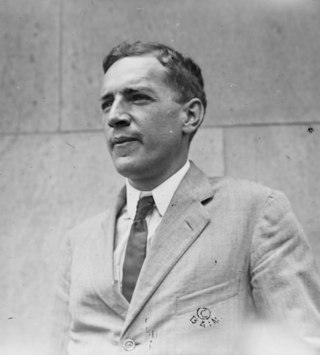
Upton Beall Sinclair Jr. was an American writer, muckraker, political activist and the 1934 Democratic Party nominee for governor of California. He wrote nearly 100 books and other works in several genres. Sinclair's work was well known and popular in the first half of the 20th century, and he won the Pulitzer Prize for Fiction in 1943.
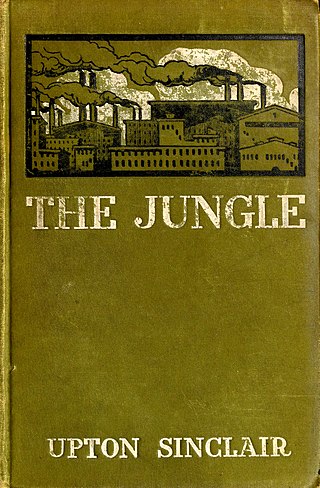
The Jungle is a novel by American muckraker author Upton Sinclair, known for his efforts to expose corruption in government and business in the early 20th century. In 1904 Sinclair spent seven weeks gathering information while working incognito in the meatpacking plants of the Chicago stockyards for the socialist newspaper Appeal to Reason, which published the novel in serial form in 1905. The novel was later published in book format by Doubleday in 1906.

Juan-les-Pins is a town in the commune of Antibes in the Alpes-Maritimes department in Southeastern France. Located on the French Riviera, it is situated between Nice and Cannes, 13 kilometres (8 mi) to the southwest of Nice Côte d'Azur Airport. Juan-les-Pins is a major holiday destination popular with the international jet set, with a casino, nightclubs and beaches. It is served by Juan-les-Pins station on the Marseille–Ventimiglia railway.

World's End is the first novel of Upton Sinclair's Lanny Budd series. First published in 1940, after World War II had begun in Europe the previous year, the story covers the period from 1913 to 1919, before and after World War I.

Dragon's Teeth is a 1942 novel by Upton Sinclair that won the Pulitzer Prize for the Novel in 1943. Set in the period 1929 to 1934, it covers the Nazi takeover of Germany during the 1930s.
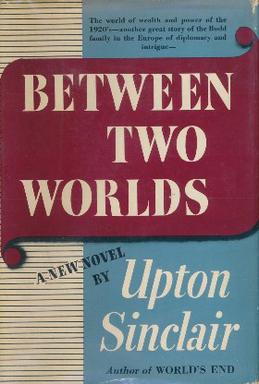
Between Two Worlds is the second novel in Upton Sinclair's Lanny Budd series. First published in 1941, the story covers the period from 1919 to 1929
Between Two Worlds may refer to:

Presidential Agent is the fifth novel in Upton Sinclair's Lanny Budd series. First published in 1944, the story covers the period from 1937 to 1938.

Dragon Harvest is the sixth novel in Upton Sinclair's Lanny Budd series. First published in 1945, the story covers the period from 1939 to 1940.
"A world to win" is a phrase written by Karl Marx in The Communist Manifesto, as part of the famous quotation: “Let the ruling classes tremble at a Communistic revolution. The proletarians have nothing to lose but their chains. They have a world to win. Workingmen of all countries unite!”
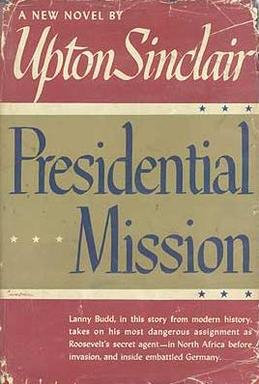
Presidential Mission is the eighth novel in Upton Sinclair's Lanny Budd series. First published by Viking Press in 1947, the story covers the period from 1942 to 1943.

One Clear Call is the ninth novel in Upton Sinclair's Lanny Budd series. First published in 1948, the story covers the period from 1943 to 1944.
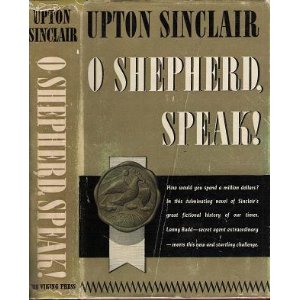
O Shepherd, Speak! is the tenth novel in Upton Sinclair's Lanny Budd series. First published in 1949, the story covers the period from 1945 to 1946.

The Return of Lanny Budd is the 11th and final novel in Upton Sinclair's Lanny Budd series. First published in 1953, the story covers the period from 1946 to 1949.
Thomas Werner Laurie (1866–1944) was a London publisher of books that were avant-garde in some cases, racy in others.
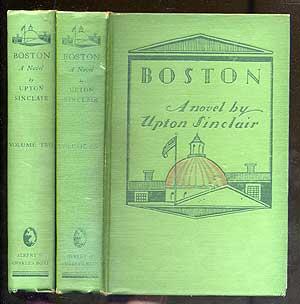
Boston is a novel by Upton Sinclair. It is a "documentary novel" that combines the facts of the case with journalistic depictions of actual participants and fictional characters and events. Sinclair mixed his fictional characters into the prosecution and execution of Sacco and Vanzetti.
Lanny is a masculine personal name attributed as a variation of Laurence or Roland and may refer to:
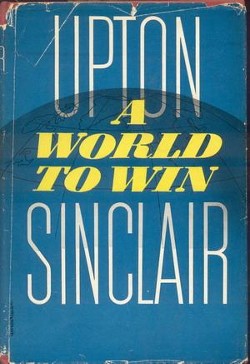
A World to Win is the seventh novel in Upton Sinclair's Lanny Budd series. First published in 1946, the story covers the period from 1940 to 1942.

Mary Craig Sinclair (1882–1961) was a writer and the wife of Upton Sinclair.
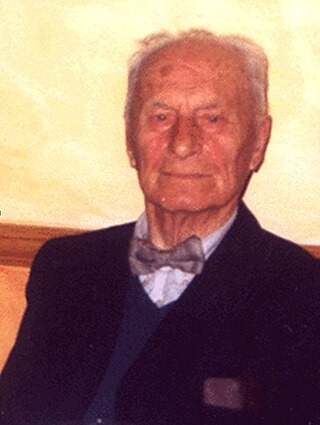
Grigory Aleksandrovich Tokaev also known as Grigory Tokaty; was a Soviet rocket scientist and politician. Eventually turned anti-communist, he defected to the United Kingdom and became a long-standing critic of Stalin's USSR.














